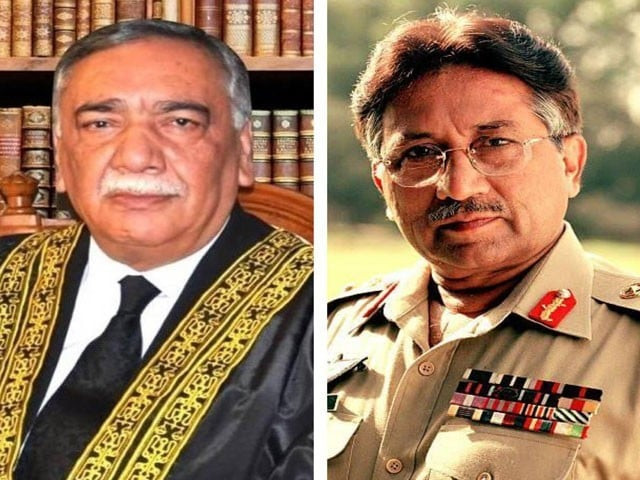Institutional harmony and good governance
The challenges Pakistan faces essentially revolve around the quality of governance and formulation of right policies

For it is a question of the direction of the state, its future development, the centres of power and fair allocation of resources, and above all the adherence to the principles and spirit of the Constitution. It is also a question of how the world looks at us and how we perceive our national identity.
Blinded by our own narrow vision and heavily influenced by vested interest groups, we have deliberately neglected this problem of inter-institutional harmony for 72 years. We have frittered the national energy into wasteful debris and cannot leave it to the coming generations to solve it. National interest and genuine patriotism demands we confront it squarely.
There is not an iota of doubt about the enormous and continuous sacrifices the personnel of our armed forces are making on a daily basis — that is for everyone to see. The challenge is to set our country that is being defended so valiantly, on the right course.
We don’t need a genius to comprehend that Pakistan has been facing continuous political crises in one form or the other ever since its very inception. And what is most worrisome is that it is getting worse. Although this is attributable to several factors, one of the major reasons for it is our aneamic or struggling democracy. The lack of internal democracy within political parties, the government’s ineptitude toward Parliament and its intense hostility against the opposition have been the prime contributing factors. The dominance of the military leadership in the formulation and execution of national policy is another major factor.
We are told that every country has its peculiarities, and the power structure should be moulded accordingly. This argument would have been valid provided the power centres were operating within the constitutional and legal boundaries, which is generally not the case. Besides, the current power structure has failed to deliver and the country is falling behind in all human and other comparative indices among South Asian states. So until there is a realisation on this account by all national institutions, there is little hope that anything will change for the better in Pakistan.
India, the US and other countries have been exploiting the contradictions in our power structure. They are also using the erstwhile support that Pakistan gave to militant organisations to keep us on the defensive.
PM Modi uses the cover that it serves no purpose to engage with the civilian leadership of Pakistan as the power resides elsewhere. I recall even former PM Manmohan Singh at one time showed interest in dealing with the military leadership. The American, Chinese and Middle Eastern governments, realising the importance of the military, have dealt with the military leadership directly on numerous occasions. This further accentuates the contradictions in the prevailing power structure. All these distortions have become the norm and strong vested interests that include business magnets, politicians with a limited powerbase, and opportunists of all types strive hard to perpetuate them. To break their hold would not be an easy task unless the leadership, both political and military, understands the significance of the sanctity of the law and the Constitution and takes this task seriously.
It also has a domino effect as other institutions start defying the law brazenly as we have witnessed frequently. The lawyers took the law in their hands and went on a rampage in the life-saving theatre of a hospital. Being custodians of the law and vandalising a hospital shook the conscience of the nation. What was surprising was that legal stalwarts like Raza Rabbani and Hamid Khan, who have always stood for principles and high standards of professional ethics, also supported the lawyers. It is difficult to explain what were the compelling factors apart from group affiliation trumping higher considerations. The doctors had apparently mishandled a lawyer earlier despite being strictly bound by the Medical Association’s code of ethics. What the professional groups have to realise is that no code or guideline can cover every situation or is a substitute for their professional judgment. Regrettably, the recent happenings even failed to meet the minimum standards that are expected from the citizens of Pakistan.
Foreigners are struck by the unruly behaviour of our people on the roads. We take it as a norm when motorcyclists are zigzagging, cars are overtaking from the left and right, harassed pedestrians are crossing roads with their life at risk and no one holds them accountable. These scenes present a picture of an ungoverned state and an undisciplined people. The behaviour at the state level, institutional or individual level portrays the same weaknesses and failing attributes. Of course there are individuals, government and non-government organisations that stand out for adhering to principles and functioning within the confines of the law. But these are few and distinguishable.
The object of stating the obvious and describing the common scene in Pakistan was to emphasise the expanse of our laxity of law and how successive governments are failing to establish its writ in these areas. These drawbacks have a bearing on tourism, business and the culture, thereby affecting the economy and image of the country.
Perhaps the government is so involved in pursuing mega corruption cases against previous governments, and dealing with complex economic and foreign policy issues, that these are considered trivial.
The challenges the country faces essentially revolve around the quality of governance and formulation of right policies. The expectation that the PTI government would fare better than its predecessors seems, as yet, an unfulfilled dream.
Published in The Express Tribune, December 25th, 2019.
Like Opinion & Editorial on Facebook, follow @ETOpEd on Twitter to receive all updates on all our daily pieces.















COMMENTS
Comments are moderated and generally will be posted if they are on-topic and not abusive.
For more information, please see our Comments FAQ